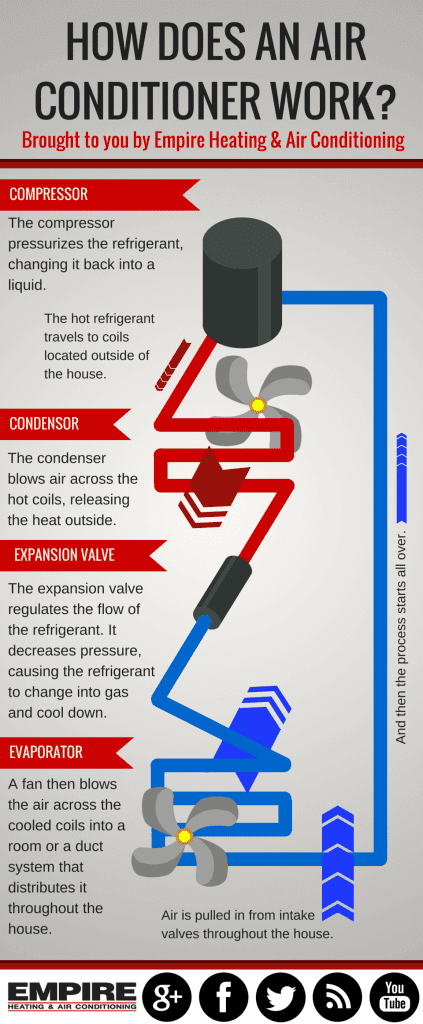Discovering The Ecological Advantages Of Warm Pumps - A Lasting Heating Service
Discovering The Ecological Advantages Of Warm Pumps - A Lasting Heating Service
Blog Article
Staff Author-Moser Stampe
In a period where sustainability and energy performance are critical, many companies look for eco-friendly home heating services. One such service is the heatpump.
A heatpump removes the heat in its environments and pumps it right into your home, causing one of the most reliable green central heating systems around. This procedure likewise produces absolutely no greenhouse gas discharges, making it a highly lasting innovation.
Power Performance
Heatpump are very energy efficient and require little maintenance. They utilize much less electricity than other heater and are by far one of the most eco-friendly. They work well with roof solar and can frequently spend for themselves in energy financial savings alone.
They can also provide cooling, which is great for garage workshops, attic room hangouts and bonus areas, and home enhancements without expanding the existing ductwork. They can also be made use of for retrofits in existing homes with hydronic (water-based) circulation systems such as low temperature radiators or glowing floors.
Look for designs with SEER and HSPF rankings that fulfill or surpass Canada's minimum standards, as well as the requirements in your area. Higher rankings imply greater efficiency, which conserves you money in the future and lowers your carbon impact. You may also get refunds and rewards! The most effective units are those with a ground warmth exchanger for added performance. These devices can take in thermal energy from the ground throughout the winter season and essence it in the summertime.
Minimized Greenhouse Gas Emissions
Heat pumps run on power and basically move warmth from the air, even when it's cold outside. They are able to extract the cost-free warm entraped in air bits and move them inside, minimizing humidity while doing so.
Compared to gas heating systems, modern-day heatpump use less than one kilowatt of electrical power per kilowatt of home heating power they generate. air conditioning units makes them one of the most power efficient home heating option offered with a COP (Coefficient of Performance) of four or more. By reducing the need for nonrenewable fuel sources, heat pumps help reduce greenhouse gas exhausts and reduce various other significant air pollutants.
Structure decarbonization is a worldwide critical, and the a/c sector is a key vehicle driver of that procedure. Whether it's real estate investors making internet no dedications, policy makers setting emissions limitations, or renters requiring greener rooms, electrical heatpump are being recognized as a crucial option. They are an affordable means to lower carbon emissions by removing the demand for fossil fuels in buildings.
Convenience
Heat pumps can be utilized in numerous kinds of homes and buildings-- with or without air ducts. just click the following page work with hot-water radiators, air-conditioning and programmable thermostats. They can change heating systems or be set up in brand-new residences. They can run on photovoltaic panels, geothermal systems and even district heating sources like wastewater.
They're terrific at providing more warm per power device. For example, an air-source heat pump generates as much as 3 or more heating devices from each electricity unit it consumes.
Getting the most from your heatpump will depend on your climate area and quality of insulation. Try to find designs with ENERGY celebrity scores and compare their SEER or HSPF specifications. In warmer climates, concentrate on SEER; in cooler areas, take into consideration a system with a greater HSPF score. On top of that, purchase air securing and insulation to lower the lots on your heatpump. air conditioners will certainly boost power efficiency and aid you reach your Internet No goals much faster.
Biomass Boilers
Biomass boilers make use of timber pellets, chips or logs to develop warmth and hot water. They are a good option for off-grid residential properties or those that wish to get off the gas grid.
As a standalone furnace, biomass can give adequate energy to keep your home warm throughout the year without the normal warmth drop off of other renewable technologies. They can additionally be made use of along with photovoltaic panels to increase savings and take advantage of RHI settlements.
A disadvantage of these systems is the in advance expense and routine gas distributions. Frequently, pellets will need to be blown right into a gas shop using a vacuum system or they can be manually fed right into the central heating boiler via a hopper. Logs are generally self-sourced from neighboring forest or acquired wholesale. As well as this, they need manual loading and may require cleaning regularly.